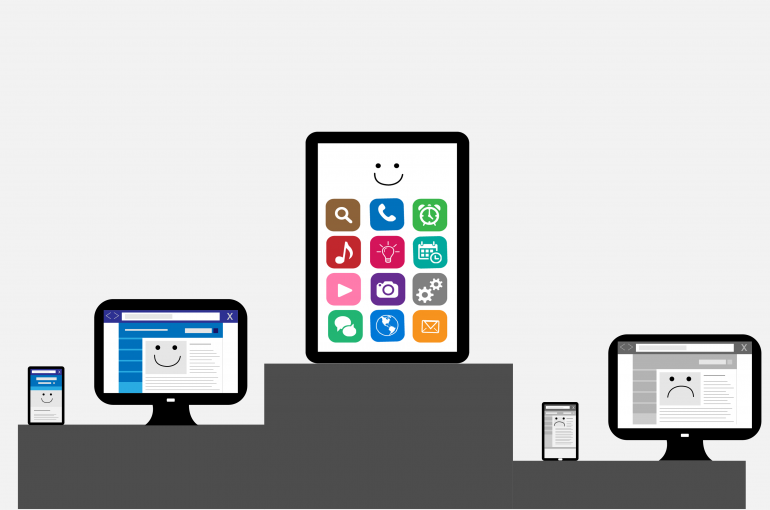There can hardly be any doubt that the era of mobile apps is already here. But if we want to compare the mobile web and the mobile apps to uphold the mobile devices’ promises, apps lead the way. While taking on a variety of business opportunities through mobile, businesses primarily focus on mobile apps as their preferred and most effective channel instead of websites.
Mobile apps primarily represent the digital channels for most businesses across the niches and not the websites. It is primarily because of the superior user experience, better monetization, enhanced user engagement, the scope of personalization, and branding benefits.
Though mobile apps hardly seem to have enough power to replace websites, they are constantly gaining more importance and are likely to become the prima facie of most brands. In many countries, mobile apps have become the alternative digital channels to the mobile web. You can hire Android app developers in India to shape your mobile presence.
Let us explain the key value propositions of mobile apps that set them wide apart from the websites.
Optimum Scope of Personalization
Personalization or user-centric tailored communication and app experience is the most important value proposition for mobile apps now. As mobile devices are equipped with a range of sensors and devices that can detect user location, user activities, and insights on user interests, preferences, and contexts, a business entity can allow a more personalized user experience compared to websites.
Mobile apps being equipped to produce deeper insights about the individual users can easily facilitate personalized user experience as per the users’ individual intent and needs. Using a variety of mobile A/B testing tools, the app user experience can be tested for different users.
Mobile application development services can also allow users to set their preferences right at the beginning, and accordingly, users can get a highly personalised user experience based on individual needs and preferences. By tracking the user engagement, in-app user activities and in-app user behaviour, an app can facilitate a more specific user experience optimised for individual user preferences.
With personalized content and user experience, users can be offered a more satisfactory user experience, leading to more frequent user engagement and business conversion.
Read More:- 20 Best Sites Like Fingerhut Online
Utilizing Device Features and Functionalities
A native mobile app will have easier access to the native device hardware features such as GPS, camera, location sensors, accelerometer, and others. Access to these native device hardware features will ensure a more fine-tuned user experience based on the specific user context and needs. This is particularly true for some app niches, such as retail, in which users often need to interact with native device features.
Various expert reports on the user experience perpetrated by device features give us some important clues in this respect. Since mobile apps are particularly preferred as an engaging digital channel to boost user experience by utilizing the hardware features, the scope of delivering a highly personalized and context-driven experience becomes more probable.
Ease of Communicating Users through Notifications
For several decades in a row, email was the primary means of communicating with customers and staying in touch with the audience through instant digital communication. With the emergence of mobile apps and the notifications for communicating the users, emails have taken the backseat now.
Two types of notifications, such as push notifications and in-app notifications, made things extremely easier to communicate the uses in a highly context-driven manner. While push notifications effectively create alerts, send new and lucrative offers, and re-engage users, in-app notifications effectively boost user engagement and activities, push business conversions, and streamline in-app activities.
These days, notifications are used by mobile apps extensively to send business-specific messages, create alerts and push user engagement and business conversion. Since app users are extremely casual and oblivious in their approach, app notifications play an important role in driving user engagement and business conversion.
Offline Access
Native mobile apps also play an important role in facilitating offline access to app content and certain features. Offline access happens to be the key difference between the website and mobile apps. Native apps, thanks to their localized decide level caching, can help to make certain content available to the users even when network connectivity is not available.
For example, certain banking and financial app features such as the tax calculator, loan calculator, premium calculator, and installment calculator can be accessed offline and without a network connection. Offline access to such features ensures optimum ease of use and a flexible user experience. In this respect, we must take into consideration that offline access to certain content and features requires using advanced caching techniques.
Enhanced User Engagement and Business Conversion
Mobile apps having their own UI attributes deliver a more immersive user experience compared to the mobile web. Mobile apps, by taking full advantage of the device features and the appearance of the smartphone screen and interface, optimizes user engagement and, in turn, helps in more streamlined business conversion.
Mobile apps allowing easier interactions to take different actions and engage in different activities make things easier for smooth business conversion. Thanks to mobile apps, business brands can offer more specific solutions to their target audience’s problems and thus facilitate greater ease of use and engagement.
Achieving Better Brand Impression
Another key advantage of mobile apps over the mobile web is better branding and competitive brand presence. As a mobile app continues to attract attention right from the device Home Screen and continues to communicate every now and then through the app notifications, they achieve better visibility for the business brand than their mobile web counterparts.
Apps, unlike websites, appear as more specific solutions to user problems and hence apps easily drive traction and engagement. As a business brand, simply by addressing the users’ relevant issues and wants, an app can easily give a facelift to the brand’s presence.
Conclusion
The rise of mobile apps can be seen as the emergence of mist-viable digital channels challenging the mobile web more decisively than ever before. As digital presence has become indispensable for most business brands, mobile apps continue to hold pride in business brands’ marketing landscape across the niches.




